Mali
Russia's foreign minister, Sergei Lavrov, on a one-day visit to Mali, has said Moscow will continue to help Bamako improve its military capabilities.
Mali junta leaders want Russia’s help to battle an Islamist insurgency that remains entrenched despite years of fighting.
Since taking control of Mali in two coups since August 2020, the military junta led by Colonel Assimi Goita has embraced Russian support to aid its anti-jihadist fight, after evicting the forces of former colonial ruler France.
Several Malian officials have travelled to Moscow, but the visit by Lavrov is 'the first of its kind' aimed at cementing 'a new dynamic' for security and economic cooperation between the two countries, according to Mali's foreign ministry.
'We are grateful to our Malian friends for supporting Russian initiatives on many issues that are on the agenda of the world organisation, and which are becoming increasingly important,' said Lavrov at a press conference on Tuesday afternoon.
'I'm referring to the inadmissibility of glorifying Nazism, the inadmissibility of the start of an arms race in outer space, and the need to abandon the placement of weapons in outer space.’
The visit of fewer than 24 hours will be his third trip to Africa since July, part of a bid to expand Russia's presence on the continent amid broad international isolation after Moscow's invasion of Ukraine last year.
Human rights concerns
Mali has already received planes and attack helicopters from Moscow, as well as several hundred Russian soldiers described by Mali's leaders as instructors who are helping to reinforce its defence and sovereignty.
Western officials and some rights groups say the fighters are actually paramilitaries with the Wagner Group, who have been accused of brutal tactics and rights abuses elsewhere in Africa.
Lavrov's visit to Mali comes amid increasing concerns by Western countries about both the growing partnership between Moscow and Bamako, and the alleged human rights abuses committed by the mercenaries.
But both the Russian foreign minister and his Malian counterpart, Abdoulaye Diop, dismissed efforts by the United Nations to investigate the alleged abuses in Mali.
‘As for some UN experts who are doing some research on alleged war crimes by the private military company, Wagner. I am not aware of any UN experts who would be empowered to consider any aspect of war crimes, whoever committed them,’ said Lavrov.
Mali's leaders have claimed successes against Islamists that have targeted the government for the past decade, a crisis that has claimed thousands of lives and forced hundreds of thousands from their homes.
But foreign observers, including the United Nations, have cast doubt on the claims, noting persistent attacks in the north and northeast of the country.
On Monday, the UN rights chief Volker Turk denounced Mali's expulsion of the agency's top human rights representative over the weekend, saying his work was "more crucial than ever".
Diplomatic coup
Lavrov's visit also comes amid uncertainty about whether Goita will stick to his agreement for a return to civilian rule in March 2024, especially if the security crisis continues.
Last month, the Coordination of Azawad Movements (CMA), a predominantly Tuareg alliance that fought the state for years before signing a peace deal in 2015, said it was pulling out of efforts to draft a new constitution, accusing the junta of foot-dragging.
Mali's new Russian allies are also accused by rights groups and witnesses of abuses against civilians, including by the UN's human rights envoy, which prompted his order to leave the country.
The military regime has repeatedly blocked attempts by the UN peacekeeping force, MINUSMA, to investigate reports of human rights abuses carried out by the armed forces.
As tensions with the international community rise, Moscow is hoping to seize a chance to expand its influence in the troubled region, with analysts noting that several African nations have declined to condemn Russia's invasion of Ukraine.
In January, Lavrov slammed the West while accusing the US and its allies of 'colonial methods' as he visited Angola, South Africa, and Eswatini, insisting that Moscow sought relations on the continent built on 'solidarity and support'.




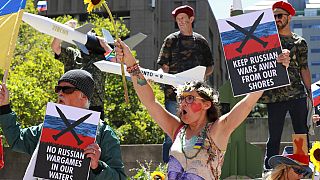
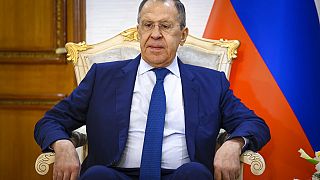
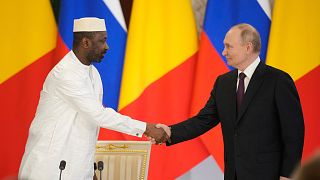
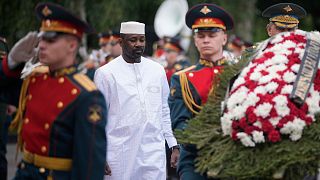
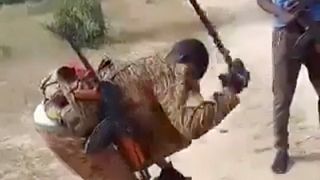



01:00
Pix of the Day: June 19, 2025
01:41
UN warns of looming famine in Sudan, Gaza and 3 other global hunger hotspots
01:49
Russia says it plans to boost economic and military cooperation with Africa
Go to video
Wagner group announces withdrawal from Mali after “mission accomplished”
01:44
Chinese president hails Belarus as a 'true friend'
Go to video
Mali: Army foils attack in Timbuktu, a day after jihadist assault killed 30 soldiers